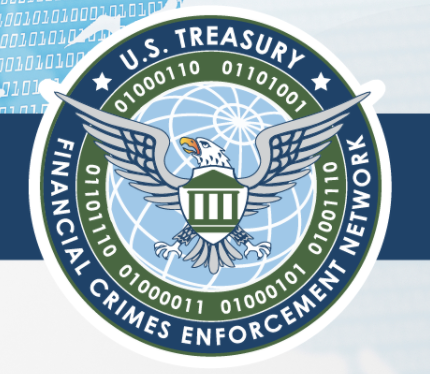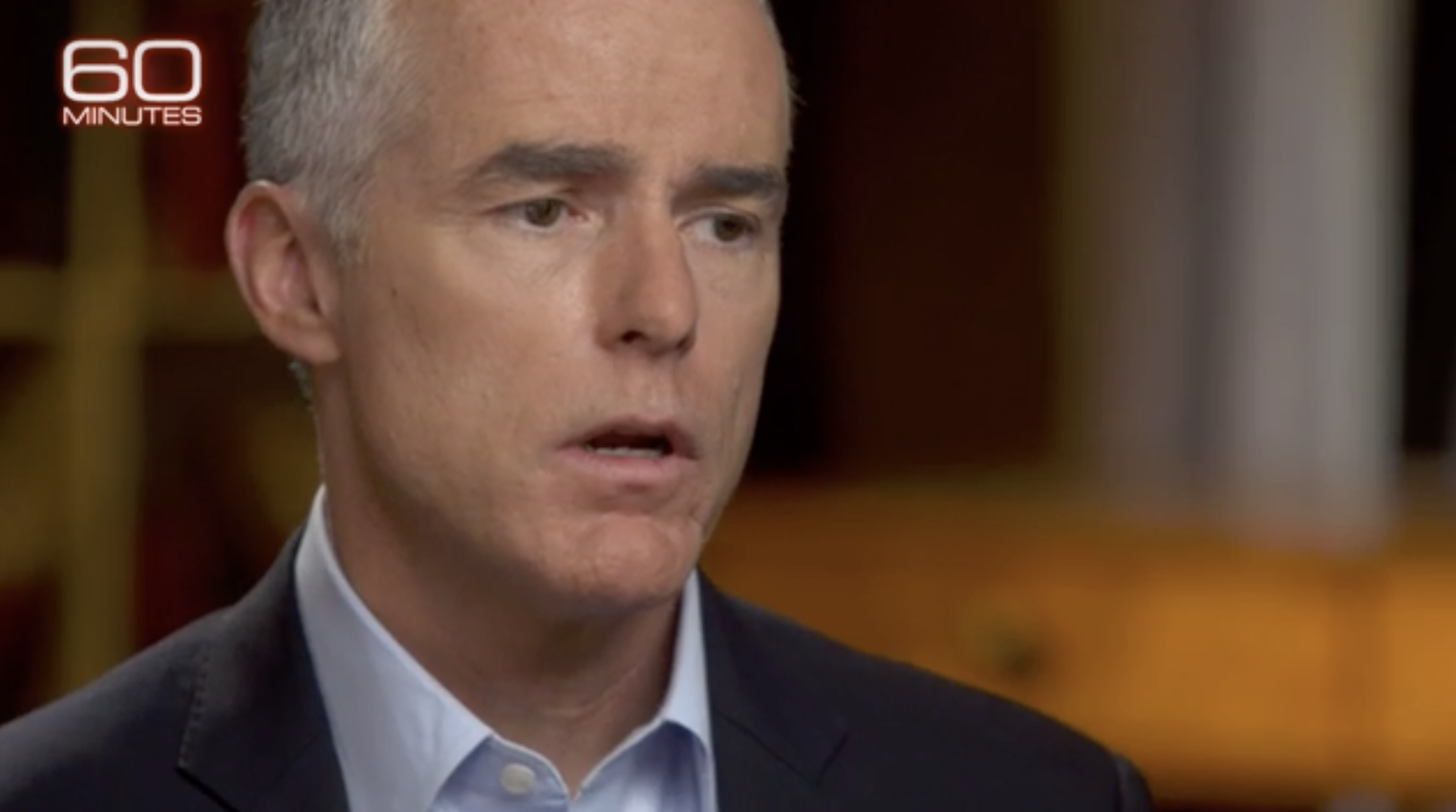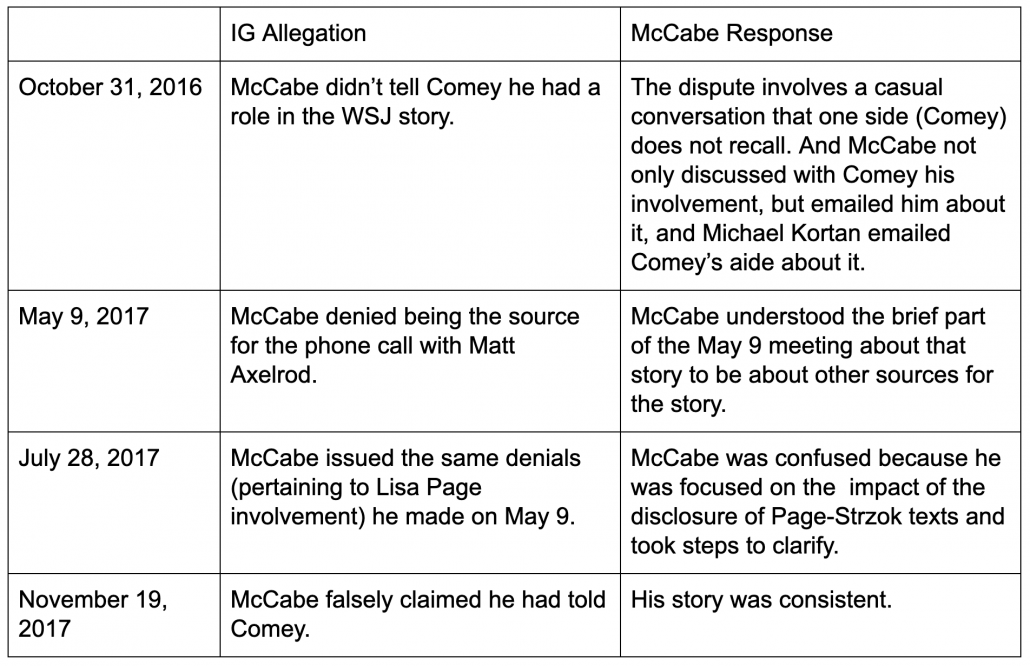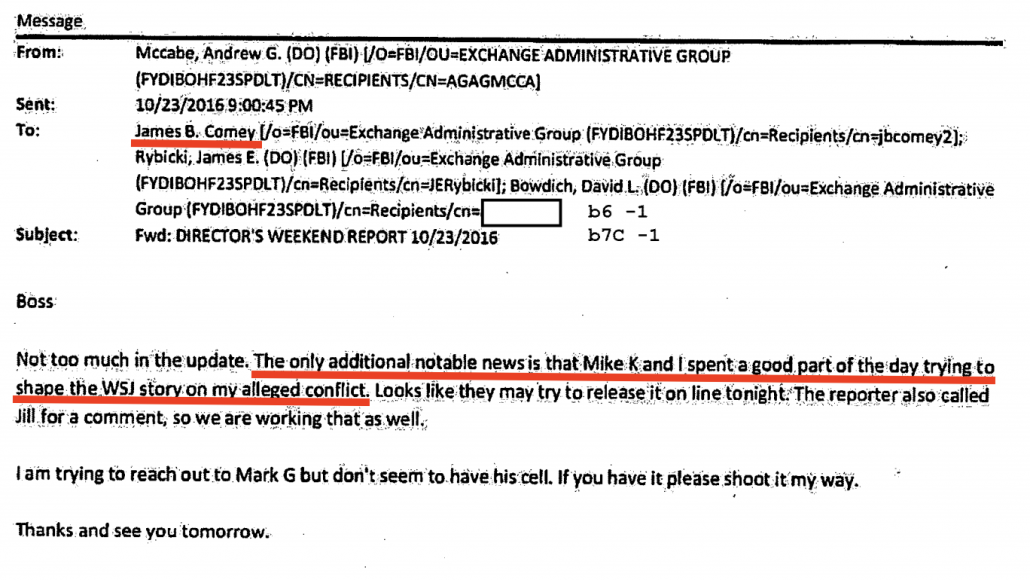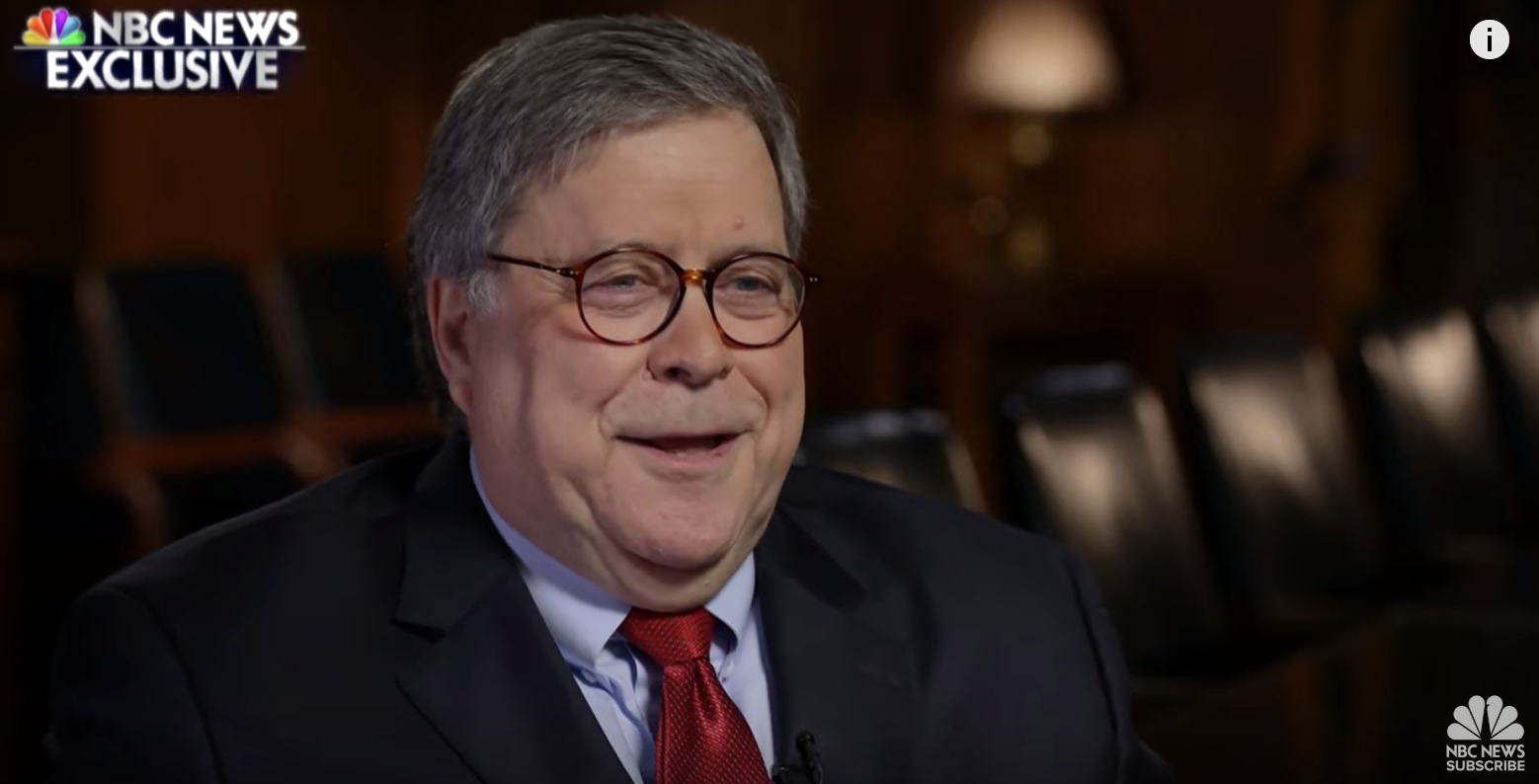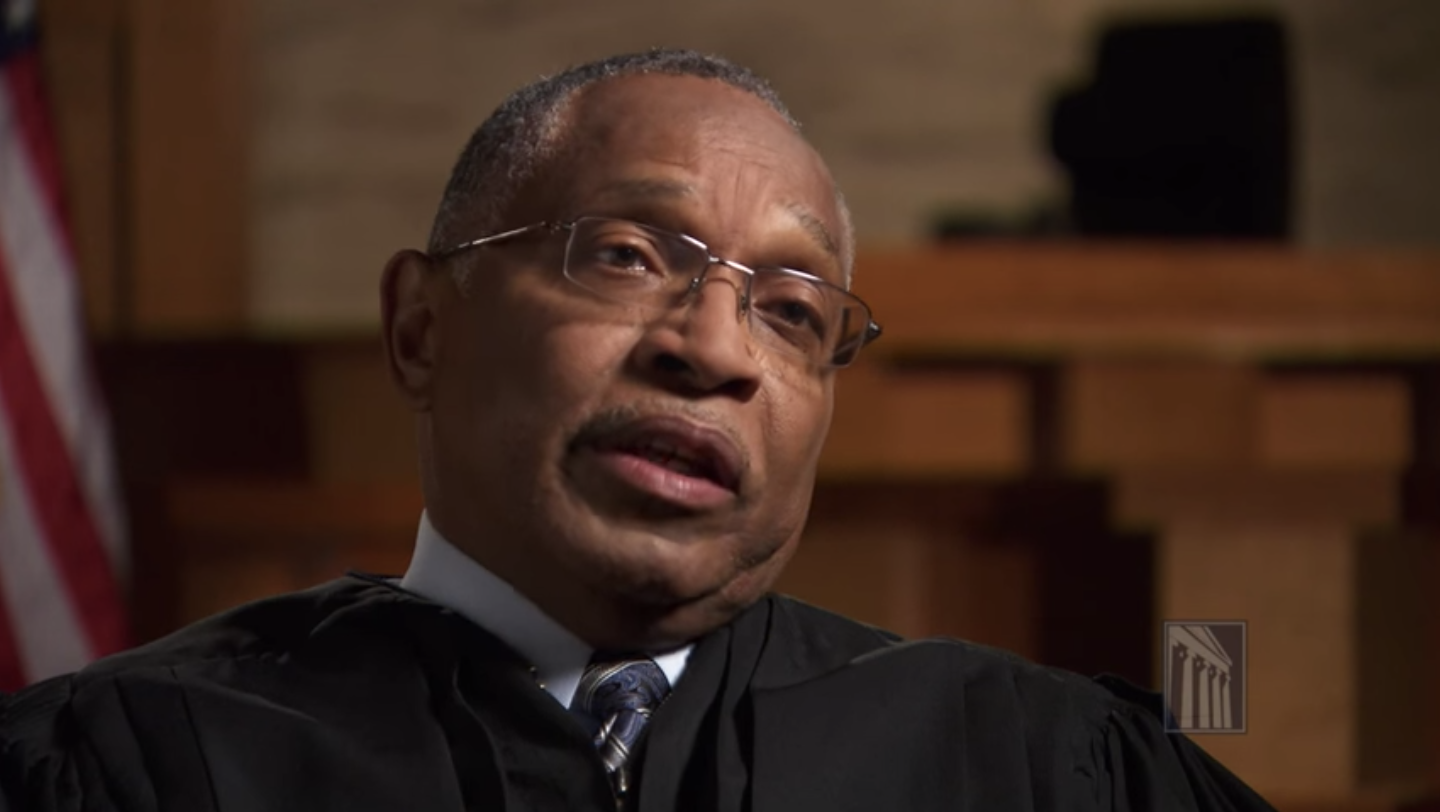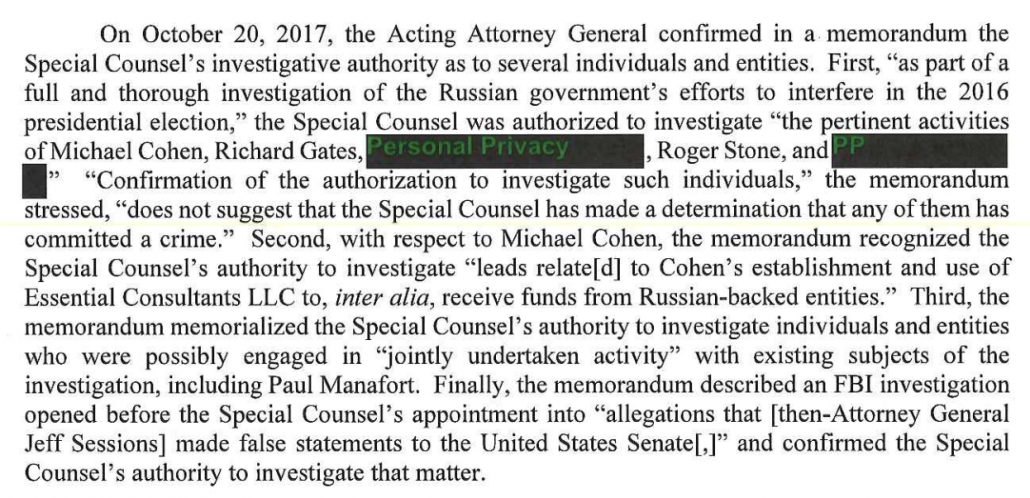The government released another bunch of 302s in response to BuzzFeed’s FOIA last night. They include a bunch (but not all, and not the most important) of the reports from George Papadopoulos. This post will lay out what they show.
As background, however, remember what FBI knew about some of his interactions with Joseph Mifsud before interviewing Papadopoulos.
Interactions with informants
First, there was the tip FBI received from Australia on July 27, 2016, after the release of the WikiLeaks emails made it seem like Papadopoulos had had advance knowledge they would be released. As laid out in the DOJ IG Report, after telling Alexander Downer and Erica Thompson that,
he felt confident Mr. Trump would win the election, and … the Clintons had a lot of baggage and that the Trump team had plenty of material to use in its campaign.
Papadopoulos then,
suggested the Trump team had received some kind of suggestion from Russia that it could assist this process with the anonymous release of information during the campaign that would be damaging to Mrs. Clinton (and President Obama). It was unclear whether he or the Russians were referring to material acquired publicly of [sic] through other means. It was also unclear how Mr. Trump’s team reacted to the offer. We note the Trump team’s reaction could, in the end, have little bearing of what Russia decides to do, with or without Mr. Trump’s cooperation.
In at least one (late October 2016) interview with the informant identified as “Source 3” in the IG Report, Papadopoulos had laid out the outlines of his conversations with Mifsud in direct connection with the possibility he might meet Putin.
In the second consensually monitored conversation, at the end of October 2016, Papadopoulos told Source 3 that Papadopoulos had been “on the front page of Russia’s biggest newspaper” for an interview he had given 2 to 3 weeks earlier. Papadopoulos said that he was asked “[w]hat’s Mr. Trump going to do about Russia if he wins, what are your thoughts on ISIS, what are your thoughts on this?” and stated that he did not “understand why the U.S. has such a problem with Russia.” Papadopoulos also said that he thinks Putin “exudes power, confidence.” When Source 3 asked Papadopoulos if he had ever met Putin, Papadopoulos said that he was invited “to go and thank God I didn’t go though.” Papadopoulos said that it was a “weird story” from when he “was working at … this law firm in London” that involved a guy who was “well connected to the Russian government.” Papadopoulos also said that he was introduced to “Putin’s niece” and the Russian Ambassador in London. 472 Papadopoulos did not elaborate on the story, but he added that he needed to figure out
how I’m going monetize it, but I have to be an idiot not to monetize it, get it? Even if [Trump] loses. If anything, I feel like if he loses probably could be better for my personal business because if he wins I’m going to be in some bureaucracy I can’t do jack … , you know?
That said, with both Stefan Halper and this source, Papadopoulos had denied that the campaign had any foreknowledge of the WikiLeaks releases, likening optimizing them (in the way that Roger Stone did) to treason. Papadopoulos had told Source 3 that he gave that story to Halper, in part, because he thought Halper might tell CIA what he had said, so he was already crafting a story to tell authorities.
The FBI also knew Papadopoulos was spending a lot of time with Sergei Millian, whom they also had under a counterintelligence investigation.
The government didn’t release the substantive 302 from Papadopoulos’ first interview, there’s just the 302 recounting what happened on the way to the FBI and that Papadopoulos sent the FBI agent two emails after the interview. There are 12 pages withheld for a referral right before that 302 — which makes me wonder whether they’ve referred Papadopoulos’ original 302 to John Durham (which would be really corrupt, because there’s nothing classified in there, and hiding would make it harder to assess the legitimacy of the Durham investigation). The 302 that got released does make it clear the FBI told Papadopoulos, “the nature of the interview was to discuss a contact of his, who currently resides in New York,” meaning Millian, who had just been reported as a source for Christopher Steele. That is consistent with what Papadopoulos has said about the interview; he has complained he accepted the interview thinking it would only be about Millian.
Excerpts of this interview described in the government’s sentencing memo make it clear that Papadopoulos only raised Mifsud after pressed by agents.
the defendant identified the Professor only after being prompted by a series of specific questions about when the defendant first learned about Russia’s disclosure of information related to the campaign and whether the defendant had ever “received any information or anything like that from a [] Russian government official.” In response, while denying he received any information from a Russian government official, the defendant identified the Professor by name – while also falsely claiming he interacted with the Professor “before I was with Trump though.” Over the next several minutes in the interview, the defendant repeatedly and falsely claimed that his interactions with the Professor occurred before he was working for the Trump campaign, and he did not mention his discussion with the Professor about the Russians possessing “dirt” on Clinton. That fact only came up after additional specific questioning from the agents. The agents asked the defendant: “going back to the WikiLeaks and maybe the Russian hacking and all that, were you ever made aware that the Russians had intent to disclose information [] ahead of time? So before it became public? Did anyone ever tell you that the Russian government plans to release some information[,] like tell the Trump team ahead of time[,] that that was going to happen?” The defendant responded, “No.” The agents then skeptically asked, “No?” The defendant responded: “No, not on, no not the Trump [campaign], but I will tell you something and – and this is . . . actually very good that we’re, that you just brought this up because I wasn’t working with Trump at the time[.] I was working in London . . . with that guy [the Professor].” Only then, after acknowledging that the agents had “brought this up” and lying about when he received the information, did the defendant admit that the Professor had told him “the Russians had emails of Clinton.”
On February 1, the FBI agent called Papadopoulos directly to set up a meeting at George’s Ice Cream & Sweets shop for another interview (the call was recorded in a 302).
The substantive 302 makes it clear that, in the previous one, Papadopoulos had agreed to help the FBI, because he “stated that he wished to hear more about how he could potentially help the FBI.” The agent explained that he wanted Papadopoulos’ cooperation “specifically in an attempt to obtain further information about his London-based contact, JOSEPH MIFSUD.” Papadopoulos revealed what he had learned from Googling Mifsud subsequent to his first interview. He revealed that Mifsud was “an associate of a Russian discussion club of some sort” — a reference to the Valdai Discussion Club, which Mifsud had attended between the time he first met Papadopoulos and started cultivating him in London.
It’s clear that Papadopoulos had provided more information about Olga Polonskaya (possibly her email), because the agent asked about her, and Papadopoulos explained he was first introduced as one of Mifsud’s students (which was true), but then Nagi Idris told him she was Putin’s niece.
The agent also asked Papadopoulos whether he had ever met the Russian Ambassador, which he had told Source 3 he had the previous October. Papadopoulos said he had not met any Russian government officials, the meeting with the Ambassador never happened.
The agent asked Papadopoulos (who, remember, said he learned about the emails before he joined the campaign) if he had told the campaign about the emails. He responded by saying he had raised Mifsud’s name, though appears to have dodged whether he raised the emails.
Papadopoulos told the FBI that Mifsud had recently reached out and would be in DC in February, and also offered to go meet with him in the UK.
Papadopoulos was asked about Millian; his responses appear defensive, affirmatively raising both whether Millian knew about the emails and his role in the dossier.
The agent then told Papadopoulos he may have been recruited and asked if there was anyone else who might be doing so.
The agent then asked Papadopoulos if he still wanted the FBI to analyze his phone for malware; Papadopoulos said he had replaced it, but would still like to have the FBI analyze his old phone (nothing in the record suggests that happened, and the statement of the offense reveals he got a new phone on February 23, so it’s possible he just decided he didn’t want to hand over the phone and afterwards got a new one).
Papadopoulos said he wanted to speak to an attorney before committing to help the FBI, said he did not yet have one, but would be getting one the following day.
Note: From this interview, I can understand why Republicans think Papadopoulos got a bad deal, because he clearly kept saying he wanted to cooperate.
As he said he would do, the agent tried to call Papadopoulos the next day, only to find his voicemail box was full. Instead, he texted Papadopoulos. Papadopoulos said he had discussed the matter with a lawyer and had been advised not to engage any longer.
I truly feel proud that was able to do my part to assist with everything I know but as you saw yesterday there was nothing else to add and we had a nice coffee but nothing of substance.
[snip]
You guys are professionals and am sure you can deal with that person if he truly is a threat. Can’t help anymore than I have. If there is something directly related to me then that’s another matter.
The agent said he had one more thing to clear up, asked to talk to Papadopoulos, they agreed to meet at 6:30 PM, then Papadopoulos called back and said he had spoken with an attorney who told him not to go, but offered to meet Monday in the Chicago Field Office.
In spite of repeated questioning, Papadopoulos did not offer up the name of the attorney he had consulted (nor did they meet the following Monday, which would have been February 6). That’s significant, because in his Congressional testimony, Papadopoulos revealed that he had called Marc Kasowitz — at a time when he was representing Trump — and asked him if he wanted to represent him (meaning, this happened before he had an attorney).
Q And you didn’t talk to anyone from the Trump organization about that interview with the FBI?
A I don’t think I did, no. Q So you were interviewed again by the FBI — A I can’t remember if I reached out to Marc Kasowitz about either that or my subpoena from the Senate. And I emailed him and I said, Look, would you be interested in representing me? I think that’s what happened. But I don’t — I can’t remember exactly why I emailed him, but I think I emailed Marc Kasowitz’ firm sometimes after the interview, but I don’t remember if he ever responded or anything like that.
[snip]
Q Right, right, right. So when you sent this email, would it have been after the first FBI interview, but before the second one, or –
A I think it would be after I was done with my initial contacts with the FBI.
It’s certainly possible that Papadopoulos just consulted a friend who was an attorney (who wisely told him to stop meeting with the FBI without representation). But it is possible that the President’s then-defense attorney told him to stop meeting with the FBI.
The date of interview recorded on the second 302 is February 10, 2017. But both Papadopoulos’ arrest affidavit and his statement of offense say the interview happened on February 16. That’s actually a fairly significant discrepancy because, per the Mueller Report, the FBI interviewed Mifsud on February 10, and one argument they made to substantiate that his lies were material were that those lies prevented them from pinning down Mifsud on his lies. It appears the February 10 date is correct, but that FBI treated a call (also with his counsel) on February 16, as the interview in question.
In any case, this is Papadopoulos’ first interview represented by counsel. The government has said that Papadopoulos repeated the same lies he told on January 27, and it’s clear he did. He said Mifsud wanted to impress him because he “had recently come off his advisory position for the BEN CARSON campaign.” Papadopoulos misrepresented how he got hired by Sam Clovis, suggesting there was a time between when they spoke and his hiring, when it happened on the same call; in the interview Papadopoulos said happened in person in London, though it happened by phone. Papadopoulos describes the emails coming up during a discussion about Hillary’s campaign, not Trump’s. He left out that Mifsud said the Russians planned to anonymous leak the emails. Papadopoulos twice falsely said he hadn’t told any foreign government officials that Russia planned to disclose information (in addition to Australia, he told a Greek official).
This 302 seems to reflect the FBI agents cueing Papadopoulos to tell them about telling someone at a nightclub about emails, which he said he had not; it makes me wonder if he said that to Source 3 in one of their interviews after the election (which, if so, would make the IG Report’s silence on the topic really suspect), or whether — as many people suspect — he said that to Erica Thompson at a dinner party, then repeated it again to her and Downer when they had drinks.
On February 16, the Assistant General Counsel for FBI’s Cyber Law Branch called and set up a phone interview to try to clarify the timing of the conversation with Mifsud, explaining that resolving some inconsistencies in his story was time sensitive. The 302 is heavily redacted, but it’s clear that Papadopoulos refused to be pinned down on timing — it even seems like FBI had figured out that it had occurred at his breakfast meeting with Mifsud, but Papadopoulos couldn’t recall whether it had happened then.
Papadopoulos then dug in on a story that tried to claim these emails couldn’t be the ones stolen from the DNC, first reiterating that “he did not believe MIFSUD’s claims that the Russians had HILLARY CLINTON’s e-mails” (a claim utterly inconsistent with having told others about it), and then suggesting that the emails might be Hillary’s deleted emails. This passage — and its heavy redaction — is particularly interesting, because it appears to be the first time Papadopoulos told this story, and it’s the story he has since settled on, but it appears that he only told it after the FBI asked him about the comments three times.
This interview appears to be the first time the FBI asked Papadopoulos not to speak to the media, which he agreed to do.
The next interview report documents his arrest at Dulles on July 27, 2017. While this was not an interview — indeed, arresting agents had to tell Papadopoulos several times to shut up because he didn’t have his attorney present — Papadopoulos did offer up some lame excuses that seem to indicate he knew he hadn’t told the full truth:
[H]e was only able to provide the information that he remembered, PAPADOPOULOS then stated that if he had forgotten something, that doesn’t necessarily mean he’s lying.
[snip]
[Papadopoulos] then added that he was only twenty-eight years old when he was thrust into the national spotlight with all this.
[snip]
PAPADOPOULOS stated that he didn’t understand why he was in the current situation that he was, when both FLYNN and MANAFORT are not.
[snip]
At one point while PAPADOPOULOS was waiting in the booking room he expressed concern with the fact that he was just a small fish and yet he was going to look like the fall guy for this investigation.
Papadopoulos appears to have asked to call a second attorney, in addition to his own, who by the length of last name could be Jay Sekulow, which would be consistent with him having reached out to Kasowitz earlier in this process.
Papadopoulos also repeatedly said he had told the whole story in a statement to the Senate Intelligence Committee, which is interesting given that this would have taken place when Jared Kushner and Michael Cohen were writing statements for Committee testimony as a way to script and coordinate stories. That would make it all the more interesting if Papadopoulos did mention Sekulow, because Sekulow was the one coordinating all these statements.
After he turned into a MAGA star, Papadopoulos would suggest the FBI bullied him during his arrest. According to the 302, he thanked them for their kindness.
At approximately 10:40 PM PAPADOPOULOS was provided with coffee and water and PAPADOPOULOS thanked the agents for treating him very well.
The day after he was arrested, Papadopoulos needed help getting home because he had had his passports confiscated and had not replaced his driver’s license after he had recently lost his wallet, so the agents drove him to the airport and made sure he could get on a plane.
Agents then provided PAPADOPOULOS with his attorney’s telephone number and a granola bar for his travel back to Chicago.
In his first interview after being charged, Papadopoulos told a very clear story of the chronology of working for Carson, then interviewing with Clovis and being hired that same call, then traveling to Rome where he met Mifsud, all details he had claimed to not remember previously. He explained how Olga offered to connect him with people in Russia. He described both Trump and Jeff Sessions responding to his offer to try to set up a meeting with Putin enthusiastically. He described Mifsud introducing him to Ivan Timofeev, something he had not disclosed previously (but which would have been apparent once FBI accessed his Facebook account). Papadopoulos still claimed, at this point, not to have told anyone about the Russians having dirt on Hillary.
Though heavily redacted, this 302 appears to parallel the August 10 one, getting the timeline of meeting Mifsud correct, describing Trump and Sessions’ enthusiasm for a Putin meeting,
It describes Papadopoulos remembering, then backing off a memory of discussing the emails with Clovis.
PAPADOPOULOS stated to the best of his recollection he remembered CLOVIS being upset after PAPADOPOULOS said, “Sam, I think they have her emails.” PAPADOPOULOS then reiterated he was not certain if that event actually happened or if he was wrongfully remembering an event which did not occur.
This interview, his most substantive, is almost entirely redacted. From what’s unredacted, it’s clear Papadopoulos was withholding information until shown the evidence of something via communication records. For example, he admitted to an April 12 meeting that did not appear elsewhere. He was prodded to describe a Skype conversation with Timofeev. Papadopoulos needed to be “specifically asked,” before he admitted he told the Greek Foreign Minister about Russia having dirt on Hillary Clinton, too.
This interview included questions about the Transatlantic Group that he attended with Walid Phares and Sam Clovis, during which Papadopoulos discussed a September 2016 meeting with Putin’s office in London. Papadopoulos refused to walk the FBI through his notes on this planned meeting.
PAPADOPOULOS then stated he could not read his own handwriting and, therefore he could not assist the interviewers with further identifying what his notes referenced.
September 20, 2017
Papadopoulos had one more interview during the pre-plea period, which was memorialized in a 4-page 302. But that was not included in yesterday’s dump. That interview covered:
- How the campaign supported his efforts to set up a meeting with Putin.
- Details about how he used his journal.
- What he told others on the campaign about the Hillary dirt, possibly including the Sam Clovis reference.
- What an email Sergei Millian sent him on August 23, 2016, offering a disruptive technology that might help his political work, meant.
Papadopolous pled guilty on October 5, 2017. A 302 describes how Papadopoulos got the card of the FBI agent to talk to him about a problem he had had with his email account. The next day Papadopoulos explained what the problem was, and the agent told him to change his password and make sure forwarding was not on.
On October 28, the agent asked Papadopoulos whether the media or anyone from the Trump campaign had tried to contact him. Papadopoulos said neither had, and agreed to let the FBI know if that happened. After news of his plea broke on October 31, the FBI agent contacted Papadopoulos again, to find out whether he made any contact. Papadopoulos said he didn’t think the media has his phone number.
The agent called Papadopoulos to ask about media reports on people in the campaign that conflicted with his own testimony. Papadopoulos explained he had seenreports that Sessions had shut down his efforts to arrange a Trump Putin meeting. Papadopoulos said he “would stick to his original story,” (which is what he did earlier than year on telling anyone about emails). Papadopoulos said he wouldn’t have continued his efforts if Sessions hadn’t approved.
Papadopoulos disputed Bannon’s claims never to have met with Papadopoulos. Papadopoulos “remembered specifically coordinating with BANNON when he was arranging the meeting between TRUMP and the Egyptian president.” (Bannon would distance himself from Papadopoulos in his second interview with the FBI, saying that Mike Flynn handled all this.)
Papadopoulos responded to reading the first five pages of Carter Page’s HPSCI transcript by describing a call, possibly in late March, where Page told Papadopoulos to “stop showing off,” possibly because Papadopoulos was trying to broker a Russia meeting.
December 2017
Per the sentencing memorandum, the government reached out to set up a meeting in late December, but after learning that Papadopoulos had cooperated in a NYT interview, canceled the interview.
the government arranged to meet again with the defendant to ask further questions in late December 2017. However, upon learning that the defendant had participated in a media interview with a national publication concerning his case, the government canceled that meeting.
There may or may not be a 302 pertaining to this.
Update: On August 2, 2021, DOJ reprocessed these 302s for BuzzFeed. Just a few new words were released.

